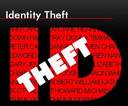 The Federal Trade Commission (FTC), a protection agency for American consumers’ complaints that has been obtaining information about identity theft victims for years, says that in 2011 has shown a rise in complaints from the previous year. As its statistics and studies from their online Consumer Sentinel Network indicate, identity theft was the top complaint in 2011. It is the 12th consecutive year in which ID theft topped the list. Their findings show that ID theft continues to be a top concern in the United States.
The Federal Trade Commission (FTC), a protection agency for American consumers’ complaints that has been obtaining information about identity theft victims for years, says that in 2011 has shown a rise in complaints from the previous year. As its statistics and studies from their online Consumer Sentinel Network indicate, identity theft was the top complaint in 2011. It is the 12th consecutive year in which ID theft topped the list. Their findings show that ID theft continues to be a top concern in the United States.
FTC (News - Alert) receives thousands of complaints of identity theft each year. Millions of Americans have their identities stolen each year, but most victims do not report ID theft. According to FTC, the amount of complaints has increased from the year before.
FTC defines identity theft as “a fraud committed or attempted using the identifying information of another person without authority.” Identity theft is serious offense; in fact, it led to the drafting of the Identity Theft and Assumption Deterrence Act of 1998, which makes identity theft a crime.
As the name implies, identity theft is the act of a thief taking another person’s identity –name, Social Security Number (SSN), credit card numbers – to either impersonate the person and/or misuse his or her identity. It can easily give a thief access to more of the person’s data and resources. In worst case scenarios, a thief could retrieve financial account information and use the person’s credit card resulting in financial loss.
To sum up, ID theft is a serious issue in today’s evolving world as FTC’s statistics and studies indicate. To resolve identity theft-related issues, report them to FTC; use the secure complaint form or call their toll-free Identity Theft helpline: 1-877-ID-THEFT (1-877-438-4338); TTY: 1-866-653-4261. The information provided will be recorded in their Identity Theft Data Clearinghouse database.
Do not be a victim of identity theft – to let anyone steal personal information or misuse your ID – as it could lead to fraud or impersonation. And do not be the victim of a scam and respond to a thief who had sent you an email – saying they need personal or financial information – as the scammer may use that information to commit identity theft.
Edited by Rich Steeves
